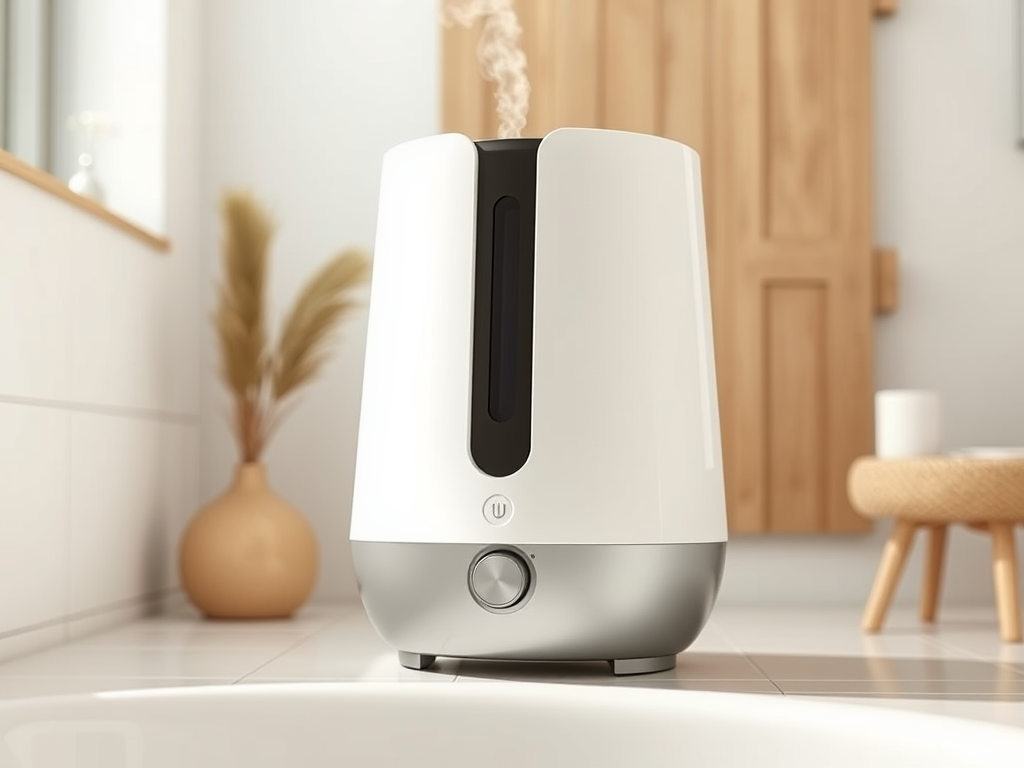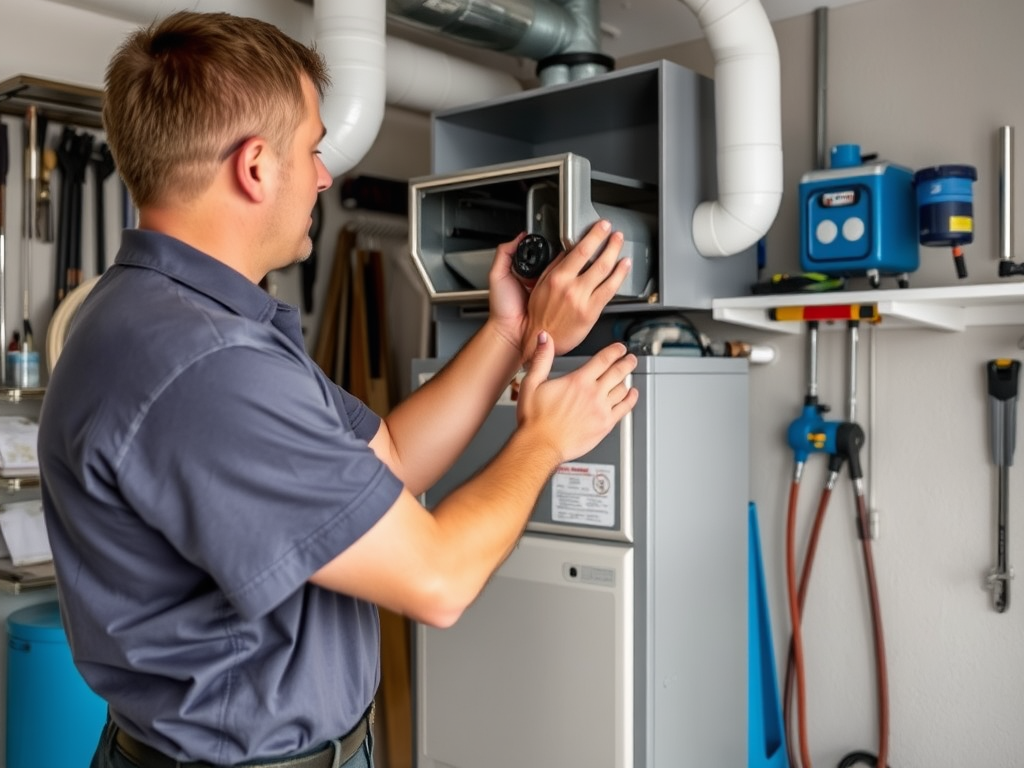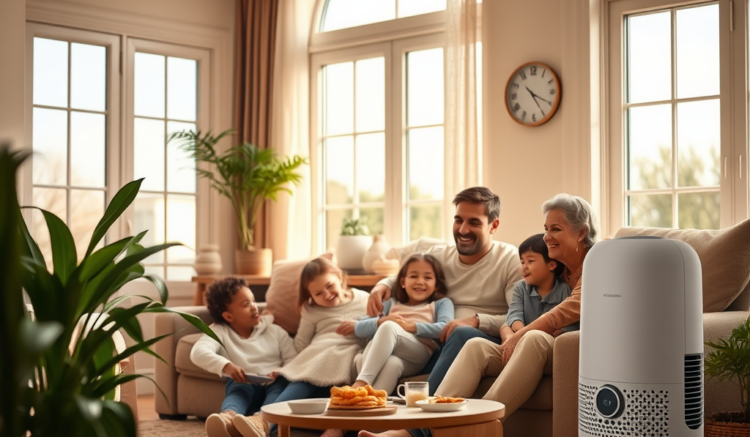As the seasons change and the air grows colder or drier, maintaining an ideal humidity level inside your home becomes increasingly important. Without proper humidity control, the indoor environment can become uncomfortable and lead to a variety of health issues. Whole home humidifiers offer an effective solution by uniformly distributing moisture throughout your living space. However, choosing the right model for your needs can be a daunting task, given the myriad of options available. This guide will walk you through the essential factors to consider, ensuring you make an informed decision that optimizes your comfort and well-being.
When selecting a whole home humidifier, it’s helpful first to understand the types available on the market. Each type has its own unique features, pros, and cons, so familiarizing yourself with these can simplify your choice. You’ll also want to evaluate your specific needs, such as room size, health considerations, and budget, before making a purchase. This article aims to provide comprehensive insights into these elements, allowing you to thoroughly assess your options. Whether you’re battling dry skin, static electricity, or wanting to preserve your wooden furniture, this resource will equip you with the necessary knowledge.
Understanding Whole Home Humidifiers

Whole home humidifiers are integrated into your HVAC system to provide consistent humidity levels throughout your home. By adding moisture to the air, they can help alleviate discomfort during those dry winter months, when indoor air can become arid. The mechanics behind these humidifiers involve using various methods to disperse water vapor, ensuring that every room benefits from a balanced humidity level. This added moisture not only enhances your comfort but can also contribute to your overall health and well-being. With proper humidity control, you can reduce the risk of respiratory problems, maintain skin moisture, and even protect your home’s structure and furnishings.
- Enhances comfort during dry months by preventing dry skin and sore throats.
- Reduces respiratory issues, particularly for individuals with asthma or allergies.
- Protects wooden furniture and floors from cracking due to dry air.
- Improves the efficiency of heating systems by maintaining a comfortable atmosphere.
- Helps in preventing static electricity, making your environment more pleasant.
Different Types of Whole Home Humidifiers

When exploring the various types of whole home humidifiers, it’s essential to understand how each operates and the scenarios in which they excel. From evaporative to steam vaporizers, each unit has its design and mechanism, catering to different user requirements. Understanding these nuances will help you determine which humidifier aligns best with your unique needs and preferences.
Evaporative Humidifiers
Evaporative humidifiers are among the most popular choices for whole home applications. They work by utilizing a fan to blow air through a wet wick or pad, causing moisture to evaporate into the air. This type of humidifier often comes with a built-in humidistat, which allows it to automatically adjust its operation based on the humidity levels in the home. One of the advantages of evaporative humidifiers is that they do not over-humidify the air, making them safer for long-term use. They’re also generally energy-efficient, offering a low-cost solution for maintaining indoor humidity.
Steam Vaporizers
Steam vaporizers function differently by boiling water to create steam, which is then cooled slightly before being released into the air. These units can effectively kill bacteria and other pathogens, making them suitable for allergy sufferers. However, they can consume more electricity compared to other types and may require extensive maintenance. Additionally, users need to exercise caution, as the steam produced can become quite hot. Understanding these trade-offs will assist you in deciding if a steam vaporizer is right for your home.
Key Features to Consider
Before making a purchase, you should evaluate several key features that can greatly influence the performance and usability of your whole home humidifier. Each feature can enhance your experience, ensuring that you receive the most value for your investment. Below are some critical aspects to examine:
| Feature | Description |
|---|---|
| Humidistat | Automatically measures and regulates humidity levels for optimal comfort. |
| Capacity | Determines how much moisture the unit can add, affecting how well it works in larger spaces. |
| Maintenance Requirements | Refers to the frequency of filter replacements and cleaning processes to keep the unit functioning effectively. |
A humidistat is an essential feature for any whole home humidifier. This device constantly monitors the humidity levels in your home and adjusts the unit’s operation accordingly, ensuring that the air remains comfortable year-round. Without a humidistat, you may either over-humidify or under-humidify your space, both of which can lead to discomfort and potential health risks. Therefore, consider investing in a model with this feature to automate the process and maintain optimal humidity levels effortlessly. Moreover, some advanced models come equipped with smart technology, allowing you to control humidity remotely through your smartphone.
Evaluating Your Specific Needs
Your specific requirements play a vital role in narrowing down your choice of humidifiers. Several factors come into play, including the size of the area you wish to humidify and any relevant health concerns. By assessing these parameters, you can determine which model will work best for your home environment.
Room Size and Layout
The size and layout of your home are paramount in selecting a suitable whole home humidifier. Larger homes may need units with higher capacities to ensure even distribution of moisture throughout the space. Additionally, the layout can influence how well the humidifier operates, especially in rooms with complex designs or multiple floors. Understanding these specifics will guide you in choosing the right unit to avoid pockets of dry air and enhance overall indoor comfort.
Allergies and Health Concerns
If you or any family members suffer from allergies or respiratory issues, selecting a whole home humidifier that meets these health needs is crucial. Opting for a model that features a built-in filter can help eliminate allergens, ensuring cleaner air circulation. Moreover, some humidifiers come with settings that allow users to control the humidity based on their specific needs. By prioritizing health aspects, you set the stage for a better living environment.
Budget Considerations
Your budget can also significantly impact your decision-making process when choosing a whole home humidifier. While it is easy to focus solely on the initial purchase price, consider the long-term operational costs as well. Some models may cost less upfront but require higher maintenance or have a shorter lifespan, increasing overall expenses. Conversely, others may be more expensive upfront but offer energy efficiency and longevity that can save you money over time.
When evaluating the cost of a whole home humidifier, it’s essential to weigh the initial investment against potential long-term savings. A higher-priced unit may feature energy-efficient designs, reducing both your electricity bills and the frequency of necessary maintenance. Additionally, consider how improved humidity levels can contribute to better health and comfort, potentially translating to reduced medical costs over time. Ultimately, investing wisely in a quality humidifier today could pay off significantly in the long run.
Conclusion
Choosing the best whole home humidifier requires diligent research and a comprehensive understanding of your unique needs. By evaluating the various types of humidifiers, their features, room sizes, and even your budget, you can make an informed decision that enhances your living environment significantly. Remember, the right humidifier should improve your overall comfort and health, allowing you to enjoy a pleasant atmosphere year-round. Armed with the insights provided in this guide, you are well-equipped to explore your options and select the ideal humidifier for your home.
Frequently Asked Questions
What is a whole home humidifier?
A whole home humidifier is a system that is installed in your HVAC system to maintain consistent humidity levels throughout your entire house.
How do I know what capacity I need for my home?
The capacity needed depends on the size of your home. Generally, larger homes require higher-capacity humidifiers.
Do whole home humidifiers require a lot of maintenance?
Maintenance requirements vary by type; however, many require regular filter changes and cleaning to ensure effective operation.
Can a whole home humidifier help with allergies?
Yes, by maintaining optimal humidity levels, it can help reduce allergy symptoms caused by dry air.
